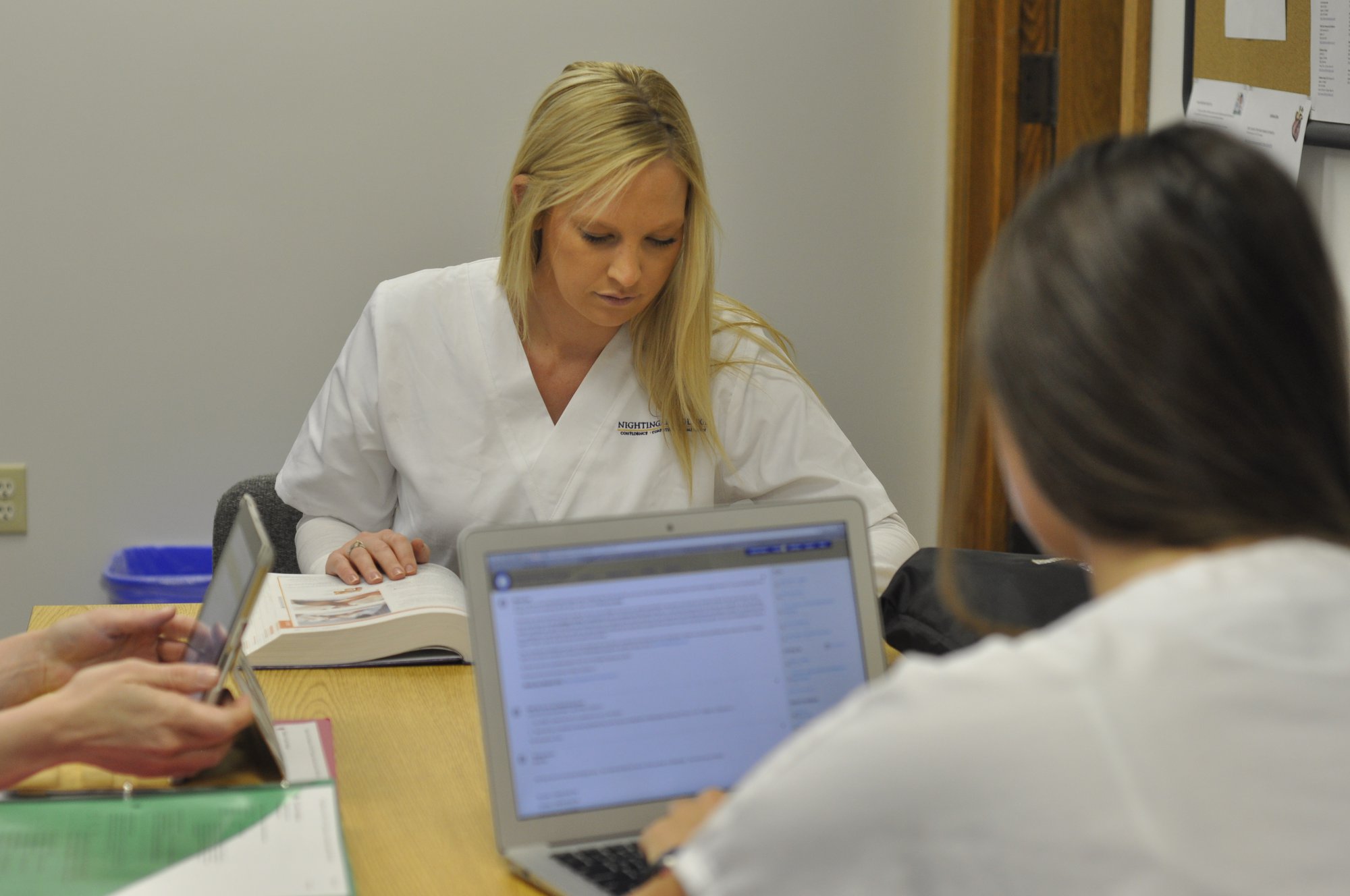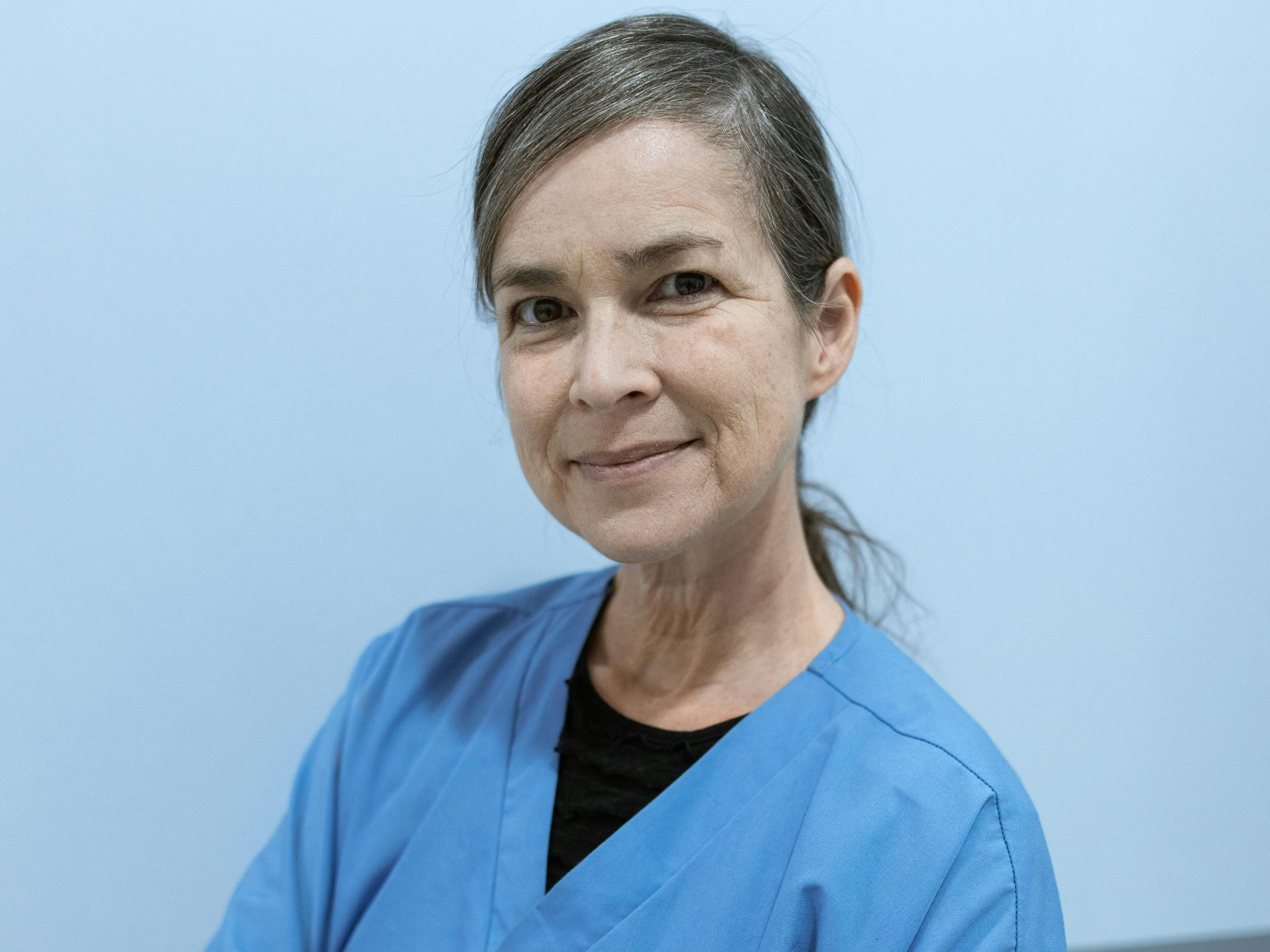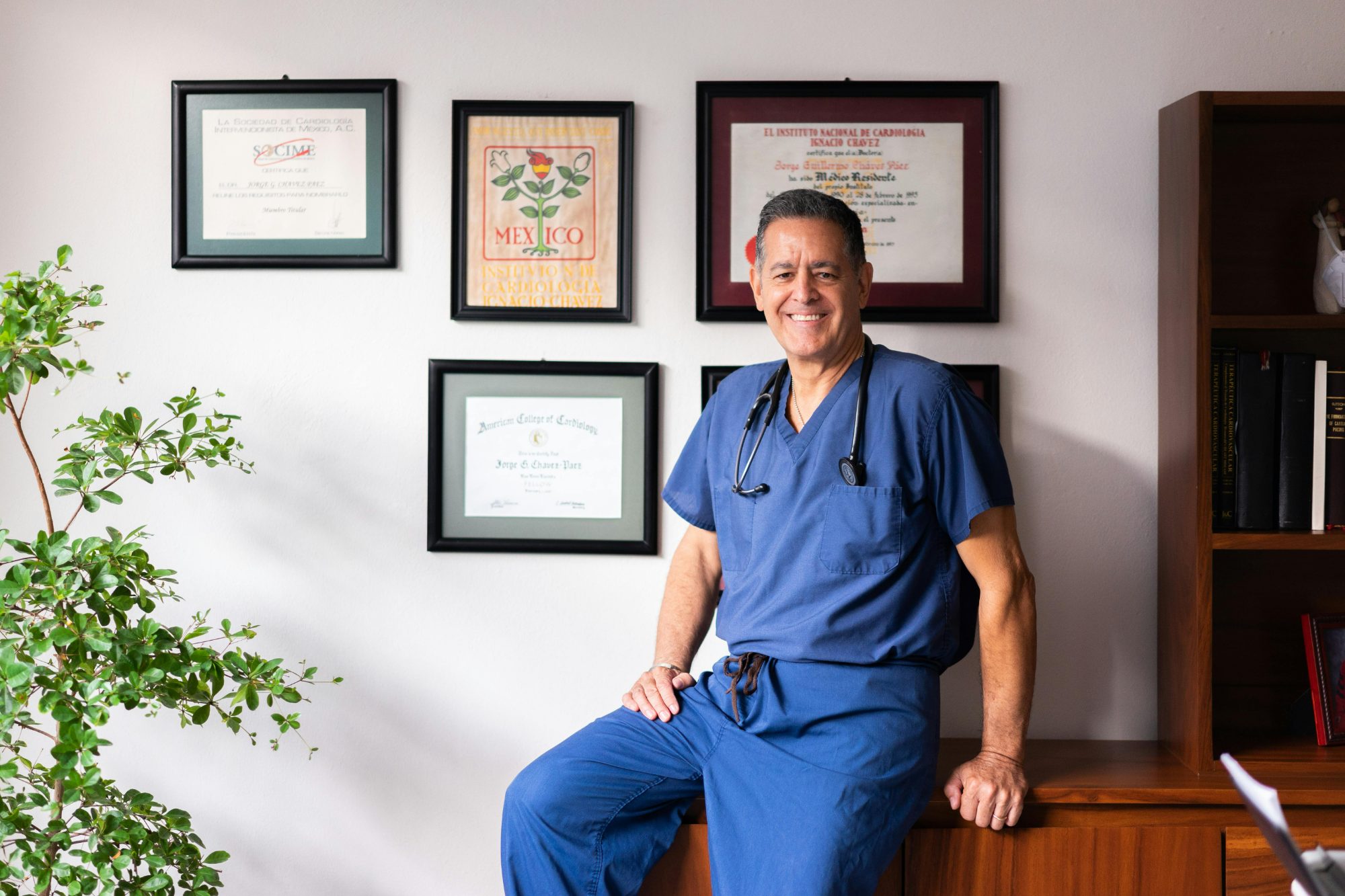How Old Do You Have to Be to Be a Nurse: Are You Too Old & Are There Any Registered Nurse Age Requirements?

If you are considering becoming a nurse, there are several age-related considerations you need to account for before starting your educational journey.
If you are thinking about pursuing a nursing career later in life, either because you have been displaced from the workforce or simply because you want a change in your current career path, you may wonder whether you are too old to be a nurse.
Similarly, if you are set on pursuing a career in the healthcare industry from the get-go, you may think about how old you have to be to be a nurse and how soon you can start studying for certification.
This guide to the registered nurse age requirements will provide you with all the answers to these questions. We will also offer valuable advice regarding the recommended educational and career paths, so that you can make the most of your nursing journey, regardless of the age at which you decide to embark on it.

How Old Do You Have to Be to Be a Nurse?
Becoming a nurse requires you to be over 18 and have a high school diploma to enroll in the required educational programs. You cannot become a nurse or start studying in nursing programs as a minor since most US states prohibit those under 18 from partaking in clinicals. Realistically speaking, the earliest age that you can start practicing as a certified nurse is 19.
What Age Can You Start Nursing School?
The earliest that you can enroll in a nursing program and start studying is when you’re 18. This is due to two main reasons.
Firstly, nursing programs generally require a high school diploma, GED certificate, or other educational equivalents to enroll. Secondarily, even if you complete your education early on, you must have turned 18 since most states prohibit minors from participating in clinicals and practical field experiences. Considering that all nursing programs include such classes, you could attend them even if you are otherwise qualified.
However, if you want to start doing something for your future nursing career before age 18, you should consider volunteering at a local hospital or doctor’s office. The volunteer hours that you accrue, as well as the various base skills you will practice there, will help you in your subsequent nursing program, as well as in your career.
What Age Can You Become a Nurse?
You can become a nurse in the US at 19 if you successfully enroll at 18.
In order to start as early on as possible, you would need to pursue the shortest educational path available, a 12-to-16-month PN Diploma Program. Once you complete the program and pass the required NCLEX-PN exam, you can start working as a licensed practical nurse (LPN).
Find out how to become an LPN, from finding the right program to enrolling and graduating.
The shortest time to become a nurse also depends on your desired position and career expectations. Although it is the most accessible path and requires the shortest amount of learning among nursing programs, the LPN role can have several drawbacks. For instance, the average LPN salary is lower than the remuneration of other nurses, such as that of registered nurses (RNs).
Read our nurse salary by state guide to compare the estimated wages of various nursing roles more extensively.
If you want to start working in an RN position, you will need at least an Associate Degree in Nursing (ADN) or a comparable diploma. Depending on the program, getting an ADN takes between 16 months to 2 years. Once you complete it and pass the NCLEX-RN exam, you can start working as a registered nurse. You also have the option of earning a BSN degree. However, BSN programs last for 3 to 4 years. Thus, the earliest you would start working as an RN with a BSN is at 21 years. However, your advanced degree will attract a higher salary and better positions. You can read our BSN salary guide and consult the list of the highest-paying BSN jobs to learn more about these benefits.
If you want to complete your education in as little time as possible and with a maximum of comfort and flexibility, enroll in one of the academic programs at Nightingale College:
- Our PN Diploma Program is a 1-year option that combines online learning with on-ground supervised field experience to prepare you to pass the NCLEX-PN and work as a licensed practical nurse.
- If you are an LPN or are considering becoming one first, we also provide a fast track to advancing to the RN position via the 16-month LPN-to-ASN Program, which allows you to continue your education at your own pace.
- Our 3-year BSN Program is for learners who want to start working as BSN-level registered nurses as soon as possible. Additionally, the hybrid system that combines online learning with on-ground supervised field experience increases the program's flexibility and accessibility.

Am I Too Old to Become a Nurse?
You are never too old to begin a career in the nursing field or change your current job to one in a healthcare setting. In fact, the only hurdles depend on your expectations from your journey toward your desired nursing role.
If you have previously dedicated yourself to family life or another career, you can safely pursue a new career in nursing by following the same route as any other aspiring nurse. Age is not detrimental, especially since nursing is a lifelong vocational occupation.
How Old is The Average Nurse?
You may often find nurses practicing well into their 40s and 50s, with the estimated median age for RNs being 46 years, according to a national nursing workforce survey.
Additionally, in 2022, 55 years or older nurses made up 31% of the entire RN workforce as well as 30% of the LPN workforce. Although the number of older nurses has decreased since 2020, one thing is clear – the nursing industry has a place for you, regardless of the age at which you decide to pursue the career. This is especially true considering the nursing shortage currently affecting the US at national and state levels.
What Age Do Most People Start Nursing School?
Most nursing school students start their respective academic programs during their 20s, with over 54% of RN program learners being under 25 years old. Here are the percentages of RN program students by age, according to the most recent nursing schools survey from the National League for Nursing:
- Under 25 – 54%
- Ages 26 to 30 – 22.3%
- Ages 31 to 40 – 16.4%
- Ages 41 to 50 – 6%
- Ages 51 to 60 – 1.2%
- Ages 61 or older – 0.1%
While much rarer, you can be certain that you can pursue a nursing career even if you would be part of the 24.7% of learners over 30.
How Old Is a New Nurse, on Average?
Considering that most learners start their programs before age 25, they will begin practicing as new nurses in their mid to late 20s and early 30s. However, the estimated age of a new nurse will depend on the level of education and role they wish to start with. For example, a learner who enrolls in a PN diploma program at 18 can start their practice as a licensed practical nurse at 19. In contrast, learners who want to start as registered nurses may start practicing by age 20 or 21 (depending on the program), even if they enroll at 18.

Is It Too Late to Become a Nurse?
Nursing is open to aspiring nurses of all ages; in this sense, it is never too late to pursue the profession. However, the final answer to the question depends on you.
Is It Still Worth It to Go to Nursing School?
Whether it is worth attending nursing school and pursuing a healthcare career is up to you and your expectations from your desired position. One key consideration is the period you are willing to work as a nurse once you have completed your education, as well as the time you want to retire.
Deciding these expectations can guide your career decision and your choice of program, ensuring that you spend as many years as possible practicing in your desired position.
Always remember that you can start with an entry-level position, return to school, and further your education later on once you become accustomed to the environment.
How Long Does It Take to Become a Nurse?
Becoming a nurse can take anywhere from one to several years spent in school, depending on which program you choose.
That is why you should establish the nursing level you aim to reach throughout your career. Although you can start practicing as a licensed practical nurse within one year and a registered nurse in as few as 2 years, higher-level positions will take more time in school. However, you can also start your work as a certified nursing assistant (CNA) in as few as 12 weeks of preparation.
Still, if you want to reach the level of a nurse practitioner (NP), you will need to get a Master of Science in Nursing (MSN), a program that takes 2 years to complete. However, having a BSN is a prerequisite for studying for an MSN, so the overall education period amounts to at least 5 years spent just in nursing school.
Read more about how long nursing school is, depending on the position that you wish to reach.
How Old Is Too Old to Become a Nurse?
It is never too late to pursue a career in nursing, as there is no maximum age for enrolling in nursing school.
As you have seen, while the percentage of older nursing students is much lower than that of those who start studying in their 20s and 30s, some schools report having learners over 40 or even 50. These age groups represent an estimated 7.3% of all nursing students. Comparing it to the latest estimation of the total number of new learners in nursing programs by the American Association of Colleges of Nursing, it would mean that there were more than 18,648 students over the age of 40 that have started a program (or 3,321 students over the age of 50).
In other words, older learners are in the minority but still represent a part of the healthcare industry.

Becoming a Nurse Later in Life With the Right Program
Although older nursing students may find it more challenging to complete the necessary programs for certification than their younger colleagues, they also bring much-needed knowledge and empathy to a profession that will need to provide care to the nation’s elderly population more and more.
One crucial part of becoming a nurse later in life or as early as possible is the program you enroll in. Chances are that you have many other familial, personal, or professional obligations. Additionally, the long pause in or lack of experience with higher education may discourage you from pursuing your desired career in the near future or at all.
That is why the academic programs at Nightingale College aim to provide learners of all ages and with all various backgrounds with high quality and valuable education, but with maximum flexibility and accessibility:
- Our PN Diploma Program prepares you to pass the NCLEX-PN within 12 months of study in a hybrid system that combines online didactic instruction with on-ground supervised field experience, providing you with an entry into practical nurse practice.
- If you want to advance your education later, you can attend the LPN-to-ASN Track, sit the NCLEX-RN, and advance to the RN position within as few as 16 months.
- The BSN Program is recommended if you want to start practicing as an RN with the highest level of certification in the field. The flexible and accessible program can take less than 3 years to complete.
Enroll in the right economic program for you and start your nursing career!

